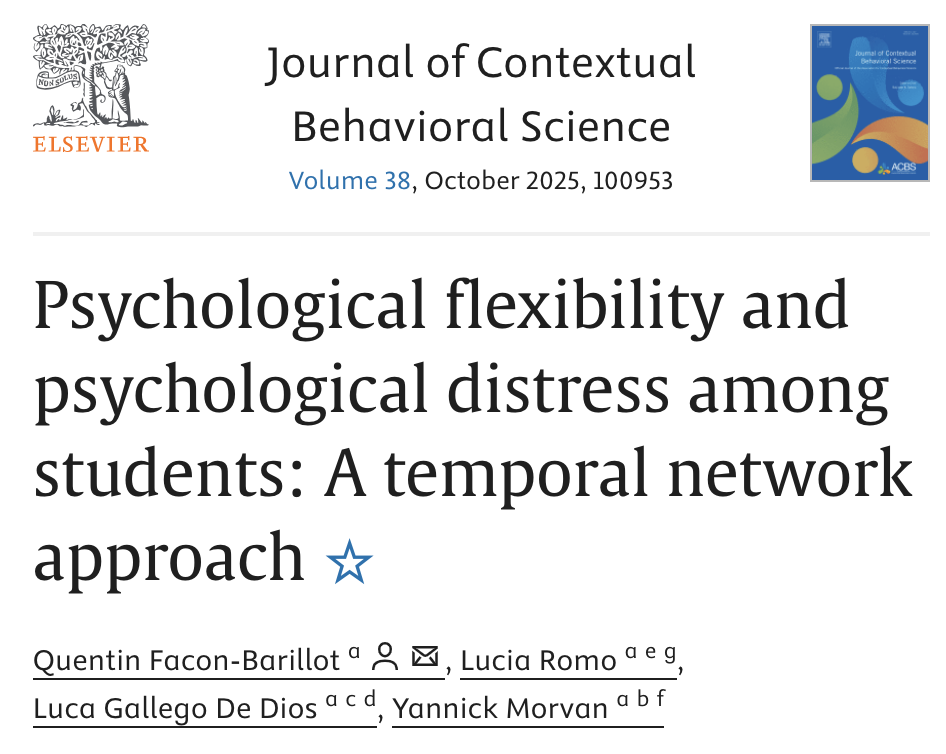Journal of Contextual Behavioral Science (JCBS)
Volume 38, October 2025
Authors
Kathryn Jamison, David Curran, Ross White, & Victoria Samuel
Key Findings
- We developed a novel questionnaire to assess applied knowledge of ACT (the ACT SJT).
- The ACT SJT was created via Delphi using three rigorous rounds of expert consensus.
- A field study found significant pre-post ACT SJT score changes after ACT training.
- A strong relationship was found between pre-training scores and prior ACT knowledge.
- The ACT SJT was rated as acceptable and useable by participants.
Abstract
Acceptance and Commitment Therapy (ACT) is an innovative form of cognitive behavioural therapy that aims to increase psychological flexibility. Currently, challenges exist with measuring practitioners' application and understanding of ACT. A situational judgement test (SJT) offers a novel approach to assessing a practitioner's ACT consistent knowledge and how it can be applied in practice. In the current research, two consecutive studies were completed to develop and evaluate the utility of the first SJT for assessing clinicians' applied ACT knowledge. First, expert consensus via three iterative rounds of Delphi methodology was used to develop the 10-item ACT SJT: 13 panellists participated in round one, 12 in round two, and 10 in round three. Involved experts specialised in the application of ACT in clinical practice and/or research for at least five years. A second study examined the utility of the developed ACT SJT, with significant pre-post changes in ACT SJT scores following ACT training. The development of the ACT SJT has potentially important implications for both clinical and research settings. It can be used by clinicians to self-evaluate their clinical application of ACT, by trainers evaluating the effectiveness of ACT introductory training, and by researchers investigating the application of ACT-consistent knowledge.
